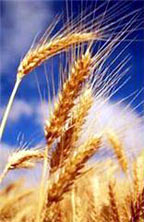
The United Nations says that it does not have the
resources to prevent malnutrition in the face of rising commodity prices,
creating a new face of hunger in areas that need international support. Even
where there is food on shelves, people can not afford to buy it.
Complex factors contribute to rising costs and hunger. More land and grain are
used to produce biofuels; one third of the corn crop goes into ethanol
production. War makes it difficult to attend to agriculture. Climate change
affects food production and each year there are a greater number of people to
feed. To produce one kilogram of meat requires about 15 kilograms of grain which
could supply many times the nutrition than meat for human beings.
Food riots, rationing and price freezes are becoming common. In Canada the price
of bread is escalating, the result of the price of wheat which has increased
recently from $5 a bushel to $10 a bushel, to $24 on the Minneapolis commodity
market for March delivery.
International Alert, an independent non-governmental organization based in
London identifies the related problem of the supply of fresh water: 3 to 4
billion people in 100 countries, including Canada and the U.S., risk political
instability because of water shortages. Secretary General of the UN, Ban Ki-moon,
says that there is enough water “provided we keep it clean, use it wisely and
share it fairly”.
Every person on the planet has the right to food, water and shelter. These are
not luxuries or “commodities” but sacred gifts of which we are stewards. Such a
vision may well be worth re-visiting in the context of justice, happiness and
sustainability for a population hungering not only for food in their bellies,
but purpose in their lives.